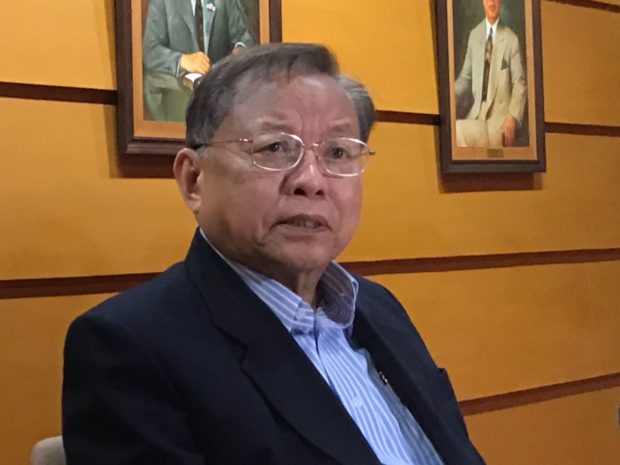Committing mistakes is part of being human but in the consultative committee tasked to review the 1987 Constitution, there is no room for errors.
Former Chief Justice Reynato Puno, head of the executive consultative committee, reminded on Thursday members of the body that “forgiveness of errors” would not be a policy in the drafting of the new Charter.
“I have only one suggestion to make to the PMS (Presidential Management Staff) – let us put a big notice to the entrance of our office that will read: ‘To err is human but forgiveness of errors will not be a policy of the consultative committee in the making our new Constitution,’” Puno said in his opening remarks at the body’s pre-oathtaking meet at the Philippine International Convention Center (PICC).
The 19-member panel held its first meeting at the PICC to be acquainted with each other and discuss the workflow and timeline for the Charter’s review.
The committee – composed of former lawmakers, justices, government officials, academe, and experts—is tasked to “study, conduct consultations, and review the provisions of the 1987 Constitution including, but not limited to, the provisions on the structure and powers of the government, local governance, and economic policies.”
Puno said the body’s task “[would] terrorize the faint in heart” but believed that there was “no iota of doubt” that they “[would] live up to the expectations” of President Rodrigo Duterte.
“Our task will not be an enviable one. It will demand a sacrifice of time, talent and treasure… Time that can no longer be recovered, talent that is beyond valuation and treasure that will transcend any measurement,” Puno said.
“It will demand courage for there will be always be a rush to resist any radical change in the power structure of a society. We should be ready to receive catcalls instead of cheers, especially from the few who rule and who think they have an imprescriptible patent to govern our people,” he added.
“It will demand patience and understanding among ourselves,” he said.
Duterte, in December 2016, created the body through an executive order (EO) and, in late January this year, appointed the members, who are mostly advocates of federalism. The body has yet to include six more members.
More representation
In an interview with reporters, Puno said he had asked the Office of the President to give due consideration to women members, as well as experts in the economy, fiscal policy, international law and foreign relations, and the military.
But he said he was not “recommending any particular person.”
While the EO does not specify what kind of government structure the committee should come up with, the retired top magistrate said that the panel would likely propose a federal government, one of Duterte’s main campaign promises.
“So we initially agreed on the architectural design of this federal model that shall adopt in the Philippines,” Puno said.
“Federal in the sense that its basic characteristic would be non-centralization of governmental powers,” he added.
The committee members would take their oaths before the President on Tuesday, February 13, and would start working on Monday, February 19, Puno said.
Open coverage?
He said that the committee has yet to decide up to what extent of the hearings would be open to public and covered by the media.
“We’ll discuss that when we agree on the rules that will govern the committee,” he said.
Former Sen. Aquilino “Nene” Pimentel Jr., a member of the committee and longtime advocate of federalism, said that consultative meetings should not be held in secrecy, especially that there are several contentious provisions would arise during the deliberations.
“My own view is that our discussion should be open and transparent and covered by media. Kailangan po ‘yun sa tingin ko (I think we need that),” Pimentel said.
Public hearings, he said, would most likely increase the possibility of the people approving the draft Charter.
READ: Nene Pimentel urges Cha-cha consultative body to hold public hearings
Puno said that the body may open certain parts of the meeting open to the public and just hold regular press briefings as there might be “a lot of privilege speeches” if the meetings would be covered live daily.
